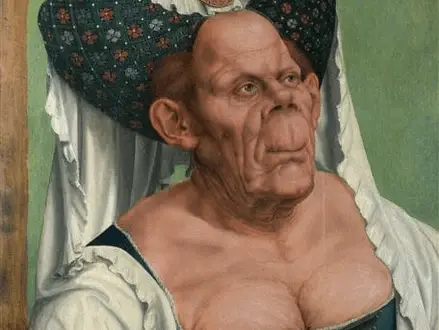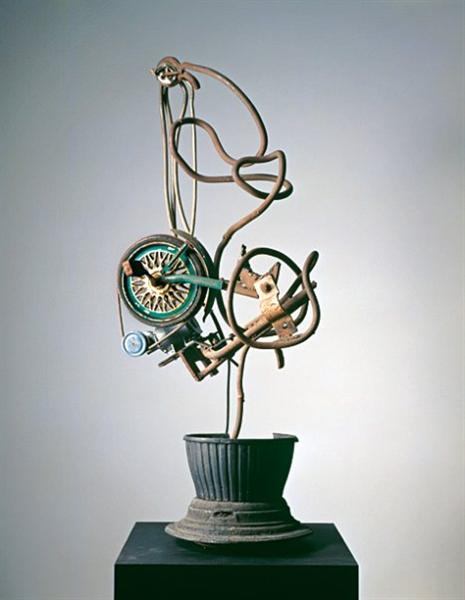Title of Artwork: “An Old Woman (The Ugly Duchess)”

Artwork by Quentin Matsys
Year Created 1513
Summary of An Old Woman (The Ugly Duchess)
Flemish artist Quentin Matsys created the satirical picture The Ugly Duchess (also titled A Grotesque Old Woman) around 1513.
Oil on oak panel, measuring 62.4 by 45.5 cm. It depicts a hideous elderly lady with wrinkled skin and drooping breasts. She’s sporting an out-of-style aristocratic horned headdress and a crimson flower, a sign of engagement at the time, to show that she’s on the lookout for a husband.
It’s been called a “bud that will likely never blossom,” though. This is Matsys’ most well-known piece of art.
All About An Old Woman (The Ugly Duchess)
Because of its uncanny similarity to two caricature sketches of heads typically assigned to Leonardo da Vinci, the picture was long assumed to have been drawn from a suspected lost work by the Italian artist.
However, recent research suggests that Matsys, who is known to have traded drawings with Leonardo, is the likely inspiration for the caricatures.
Women who “still play the coquette,” “cannot pull themselves away from their mirrors,” and “do not hesitate to expose their unsightly withered breasts” are satirised in Erasmus’s essay In Praise of Folly (1511), which may have influenced Erasmus’s writing.
Margaret, Countess of Tyrol, who was called ugly by her detractors, has been a popular candidate for this mystery woman, despite the fact that she passed away 150 years ago.
A rare type of Paget’s disease, in which bones expand and become malformed, was proposed in 2008 by Michael Baum, retired professor of surgery at University College London.
Jenny Louisa Roberta Blaker left the picture to the London National Gallery in her will in 1947.
It was lent to the National Gallery in 2008 for an exhibition in which it was displayed next to a Portrait of an Old Man, the other half of a diptych that is currently on display at the Musée Jacquemart-André in Paris.
It is believed that John Tenniel’s 1869 paintings of the Duchess in Alice in Wonderland were inspired by this portrait.
Information Citations:
En.wikipedia.org, https://en.wikipedia.org/.
























